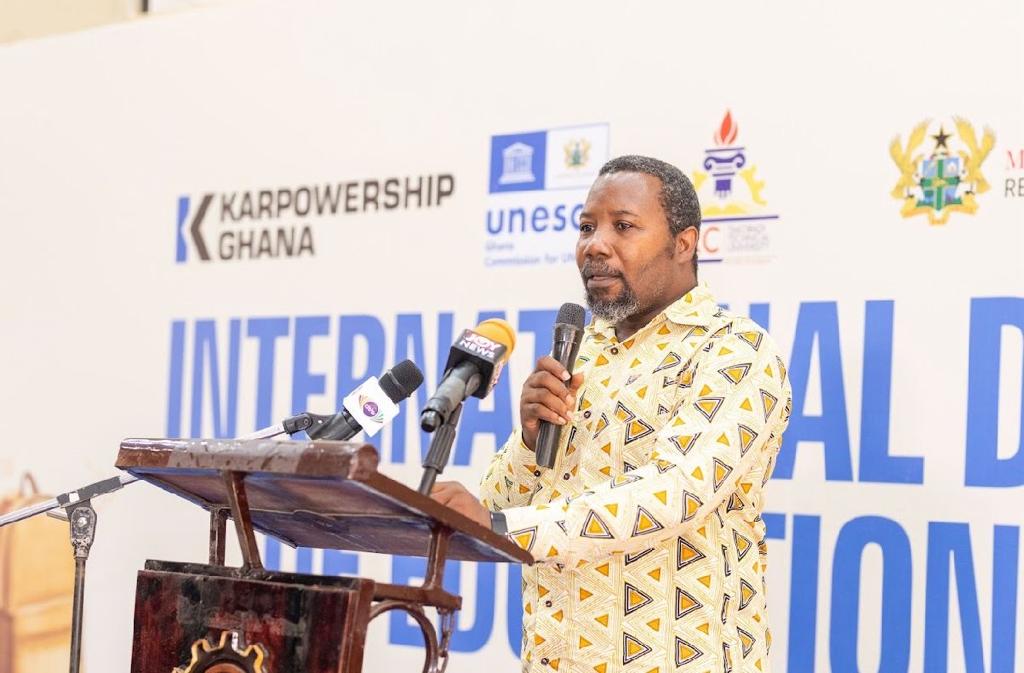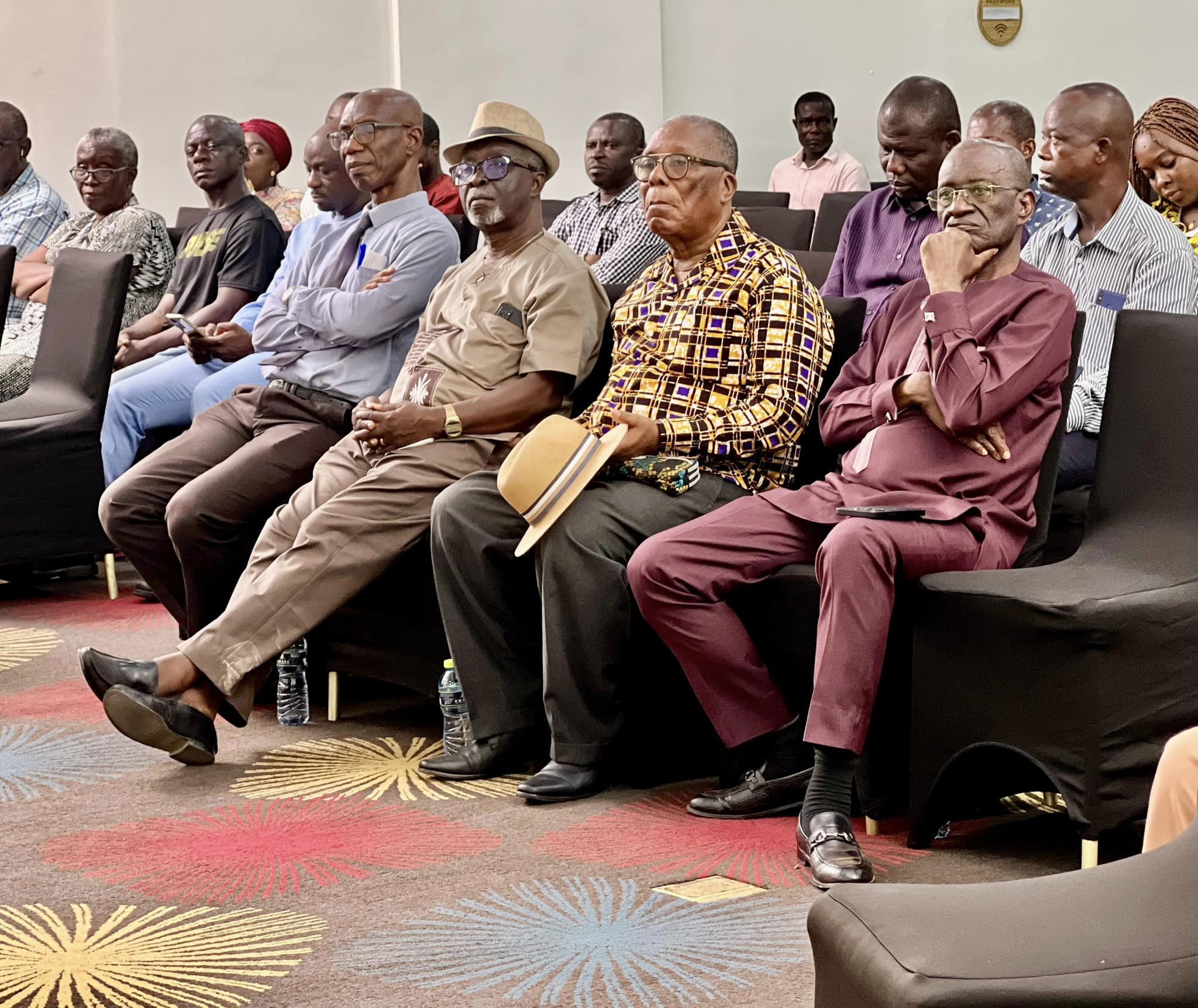![Rejoinder to the proposal of limiting free education to only day schools [Article]](http://news.ghheadlines.com/images/default.png)
The article highlights the proposal to limit free education to only day schools, which has been met with opposition. The author argues that such a policy would be discriminatory towards students from rural and remote areas, as well as those from low-income families who cannot afford to pay for boarding facilities.
The article suggests that implementing a scholarship approach would be a more effective way to allocate resources and ensure all students have access to a high-quality education.
The author also proposes identifying children from low-income families through community-based identification, means-testing, school-based identification, and geographic targeting. Finally, the article argues that the government should involve parents in supporting the sustainability of the free education policy.
To say that the current form of free education has many challenges. This notwithsatnding, one can tell that it has increased access to education especially among many rural people. Though with quality challenges, among others.
Yesterday, on Mauch 4, 2024, a former finance minister (Seth Terkper) argued that Free education should be limited to only day schools. He referenced advanced countries and added that none operate a free education policy for boarding students. You can read the full article here Limit Free SHS to day students – Seth Terkper urges programme review – MyJoyOnline
I want to share a different opinion on why free education should not be limited to day schools.
Discrimination against Rural and Remote Areas
Limiting free education to only day schools would be discriminatory towards students who live in rural or remote areas. These students often have to travel long distances to get to school, and in some cases, no day schools are available in their area. As a result, they would be effectively denied access to education, which is a fundamental right for all children.
Ghana’s government is responsible for ensuring that all children have access to education, regardless of their geographic location. Limiting free education to only day schools would clearly violate this responsibility. It would create a two-tier education system where only children in urban areas can access to quallity education. Because we all know that majority of the boarding schools are the grade A and b schools.
Discrimination against Low-Income Families
Another consequence of limiting free education to only day schools would be discrimination against students from low-income families who cannot afford to pay for boarding facilities. This would create a further two-tier system, where only children from wealthy families would have access to boarding schools and the opportunities they offer.
Education is a powerful tool for social mobility and breaking the cycle of poverty. Limiting free education to only day schools would prevent many children from low-income families from accessing the education they need to improve their lives and communities. It is equally important to add that most day schools in Ghana are category D schools.
This means that children from poor families will no longer have access to boarding schools since their parents cannot afford to pay the school fees. If for nothing, the current system has made it possible for children from poor backgrounds to attend grade A schools, which hitherto were reserved for the rich. We should never go back to the days of old where only rich children can attend Grade A and B schools.
The results of the West African Examination Council wuold tell that most of the schools that do very well are the boarding schools. Aren’t we sending these children to schools where most are destined to fail?
Limited Opportunities for Special Needs Education
The former minister should have told us whether the new proposal would include Special needs schools. Limiting free education to only day schools would also limit the opportunities for students who require special needs education, as these facilities are often only available in boarding schools. Special needs education is a vital service for children with disabilities, and limiting access to it would be a clear violation of their rights.
The government of Ghana has made significant progress in recent years in improving access to special needs education. However, limiting free education to only day schools would undo much of this progress and prevent many children with disabilities from accessing the education they need to thrive.
My personal difficulty for those who advocate for review, cancallion of free education among others is why are they not calling for the cancellation of the current salary discrimination system against the rulers and the ruled?
I have realised that anything that benefits and improves the capacity of the poor is always considered very expensive. Paying end-of-service benefits for they the politicains is equally expensive and should be cancelled. But nobody s willing to do that because they ate the decision maker.
They drive in V8 purchased for them from the poor tax pay. Live in state houses which they virtually sell to themselve at will. The politicians making these proposals hardly call for the review of their benefits. They always ask for an upward adjustment. Improving the current system is better than limiting it to day students.
The use of the scholarship approach.
I benefited from the Northern scholarship instituted by Ghana’s first president (Dr Kwame Nkrumah). The scholarship had its challenges, though. Because none northerners were on the scholarship as well as people who have never seen cocoa were on the cocoa baord schoolarship. This is due to the corruption in the system. But it worked better than the current free education system.
One suggestion for the government to improve the free education policy is implementing a scholarship approach. This would involve allocating funds to students who 1. demonstrate academic excellence and 2. financial need.
There are still many financial barriers that prevent students from accessing quality education. These barriers include uniforms, textbooks, transportation, and other school-related expenses.
For students from low-income families, these costs can be prohibitive and prevent them from attending school regularly or performing well academically. Scholarships can help to alleviate these financial burdens and ensure that all students have equal access to education, regardless of their financial situation. By providing targeted support to students with financial need, scholarships can guarantee that they can attend school regularly, obtain necessary materials, and achieve academic success.
Additionally, scholarships can help reduce the economic disparities in Ghana by providing increased opportunities for students from marginalized communities. Overall, scholarships are essential for ensuring that all students have access to quality education, regardless of their financial background.
By providing targeted support to those requiring it most, the government can ensure that students receive the resources they need to succeed. Additionally, scholarships can incentivize students to pursue specific fields of study that are in high demand or have a shortage of skilled workers. For instance, students who take technical and vocational skills and STEM courses should not pay fees.
This approach would improve the quality of education and ensure that students are adequately prepared for the workforce. Overall, a scholarship approach could be a more effective way to allocate resources and guarantee that all students can access a high-quality education.
How to identify children from low-income families.
Identifying children from low-income families in Ghana can be challenging as there is no centralized database that captures the income levels of all families. However, several methods can be used to identify children from low-income families:
1. Community-based identification involves working with local leaders, teachers, and community members to identify children from low-income households. These individuals typically understand the economic situation of families in their communities and can help identify those who may require financial assistance.
2. Means-testing: Means-testing involves assessing the income and assets of families to determine their eligibility for financial assistance. This approach can be time-consuming and expensive, but it can effectively ensure that resources are targeted to those who need them most.
3. School-based identification: Junior High Schools can also play a role in identifying children from low-income families. By collecting information on parents’ income and occupation during registration, schools can identify children who may require financial assistance.
4. Geographic targeting: Finally, geographic targeting focuses on specific areas of the country with high poverty levels. It is an open secret that children from specific regions, districts, communities are often within the low income background. The Ghana statistcial service and the Ghana Identification authorities, the LEAP programme can help the scholarship sereatiat to identify children from low income familiy so that they are granted scholarships.
Students who excel in certain areas at the final Junior High School Examination are also awarded scholarships regardless of family background. For instance those who receive the presidential award after the Junior High school automatically are awarded the scholarship.
Targeting resources in these areas makes it possible to ensure that children from low-income families receive the support they need. Combining these methods may be the most effective way to identify children from low-income families in Ghana. By working together, community leaders, schools, and government agencies can ensure that all children have access to the resources they need to succeed in boarding or day school.
Parent Teachers Association support.
The government should accept that declaring everything accessible in the current free education policy has not helped and needs to be helped. Parents should be made to contribute, i.e. the provision of electricity, books and uniforms and perhaps the cost of feeding.
Asking parents to contribute towards the sustainability of the free education policy does not imply that the policy has failed. The government fears that allowing parents to contribute would amount to policy failure. NO, IT DOES NOT IMPLY THAT THE FREE EDUCATION HAS FAILED. The time to bring parents to support the sustainability of the free education policy is now.
Conclusion
In conclusion, the proposal to limit free education to only day schools is a misguided policy that would negatively affect many students in Ghana. Education is a fundamental right that should be accessible to all, regardless of their background or geographic location.
Ghana’s government is responsible for ensuring that all children have access to education, and limiting free education to only day schools would violate this responsibility. It is time for those against the current free education policy to work towards ensuring that all children have access to the education they need to succeed.
The post Rejoinder to the proposal of limiting free education to only day schools [Article] appeared first on Citinewsroom - Comprehensive News in Ghana.
Read Full Story















Facebook
Twitter
Pinterest
Instagram
Google+
YouTube
LinkedIn
RSS